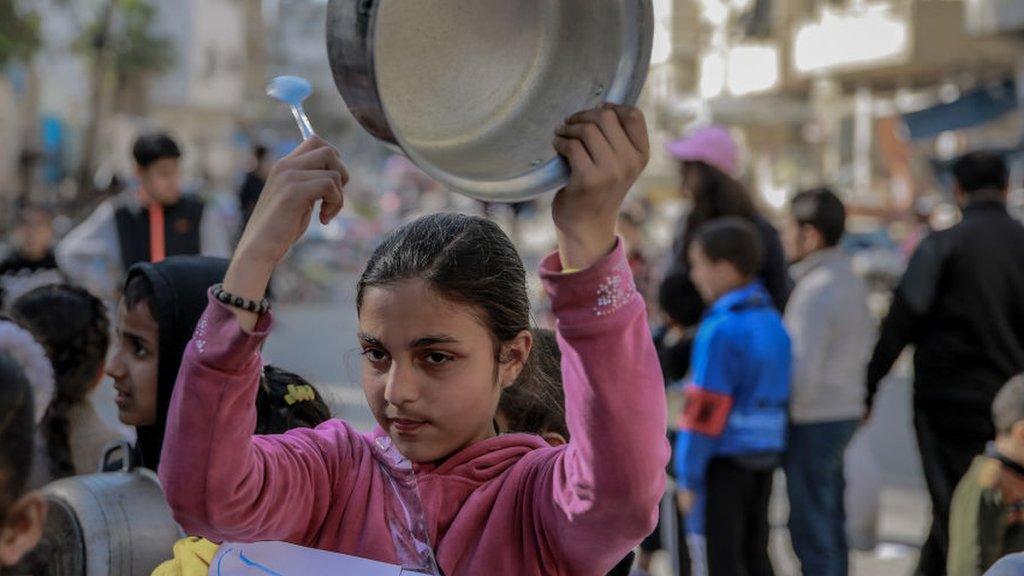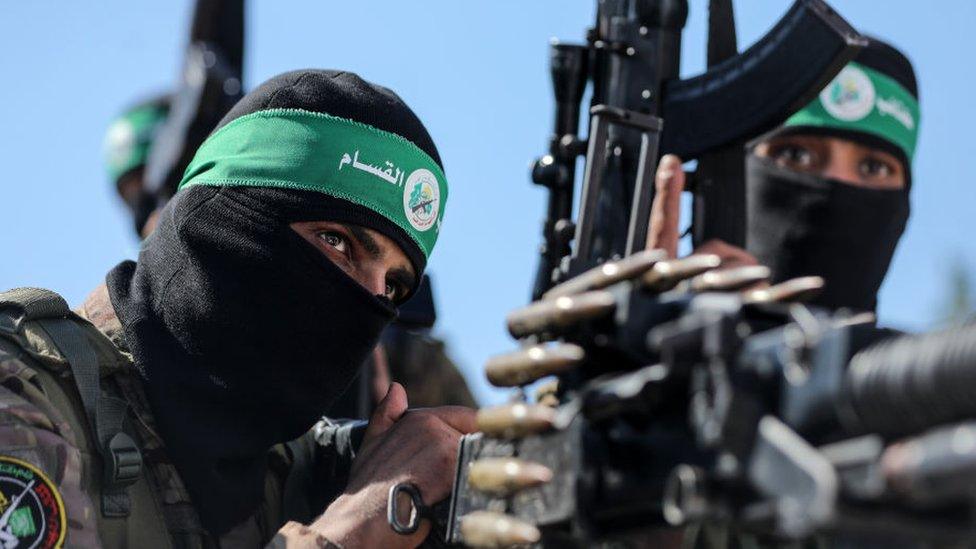Eid: Welsh Muslims reflect on Ramadan in shadow of wars
- Published
Yousra Elsadig has struggled to get excited for Ramadan because of fighting in Sudan, her home country
Conflicts in Gaza and Sudan have weighed heavily on Muslims during Ramadan, those marking the holy month say.
As Eid approaches and the month draws to a close, thoughts have been on those in the grip of war and hunger.
Beatrice Young, a volunteer at iftar events in Cardiff where Muslims and non-Muslims join to break fast, said Ramadan felt different to other years.
She said the suffering of others was not forgotten.
"The fact that we're fasting, we have food to eat when we break our fast - it's hard not to think of those who have nothing to break their fast with," Ms Young said.
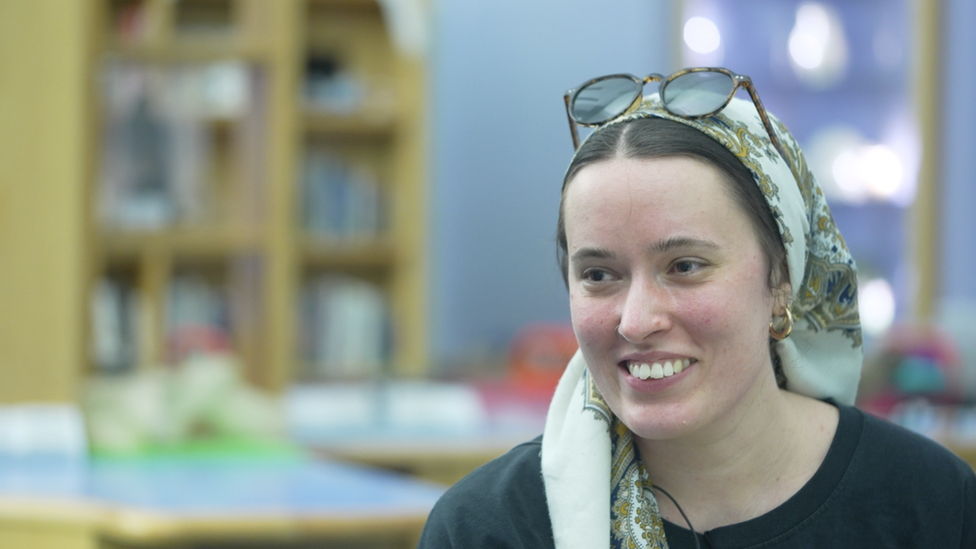
Beatrice Young says this year's Ramadan feels different to previous years
According to the United Nations (UN), famine is imminent in northern Gaza and could occur by May.
Israel, which neighbours Gaza and is at war with Palestinian group Hamas, has insisted it is letting in aid and has accused agencies of failing to distribute it.
The UN also warned conflict in Sudan could trigger the world's largest hunger crisis.
As Ramadan draws to an end, Muslims will be donating the Fitrana, a charitable donation of food to ensure those in poverty will not go hungry on Eid.
But it is unlikely those funds will reach people in areas like Gaza or Darfur before the festival.
Abdul-Azeem Ahmed said knowing the money would not reach people in need was "very difficult".
He said: "For Muslims we have a very strong sense of a global community, of a feeling of connection with others across boundaries of humanity, ethnicity and similar. So, it's a very concerning time."
He added: "This whole month we've been fasting.
"But we've always had a meal at the end of that fast... and so it makes it even more conscious in the minds of Muslims across Wales how grateful they should be, but also how dire the circumstances are across the world."
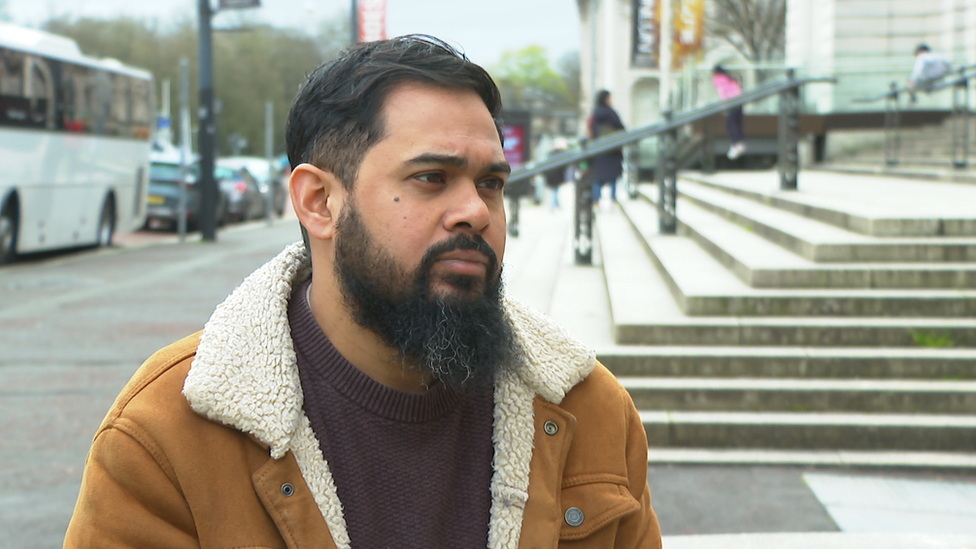
Abdul-Azeem Ahmed says it is "very difficult" knowing some money raised in Wales may not reach those in need
Palestinian group Hamas and Israel have been at war since 7 October last year.
It began when Hamas gunmen launched an unprecedented attack on Israel from Gaza - the deadliest in Israel's history - where about 1,200 people were killed and about 250 were taken to Gaza as hostages.
An Israeli military campaign has followed in the Palestinian territory.
More than 33,000 Palestinians have been killed, and tens of thousands injured by Israeli strikes since the start of the war, according to Gaza's Hamas-run health ministry.
Accounting student Mohamed Elbakbakh said the events in Gaza were a "big cloud over everyone's heads".
"Its quite cold when we leave the house to go and pray [at the mosque] but we've got warm clothes, we've got a roof over our heads.
"Some of these people, five or six months ago, were living normally, and now they've lost it all."
Reports in February also showed people in Gaza were going days without eating and were grinding animal feed into flour to survive.
In Sudan, civil war has been raging since April 2023.
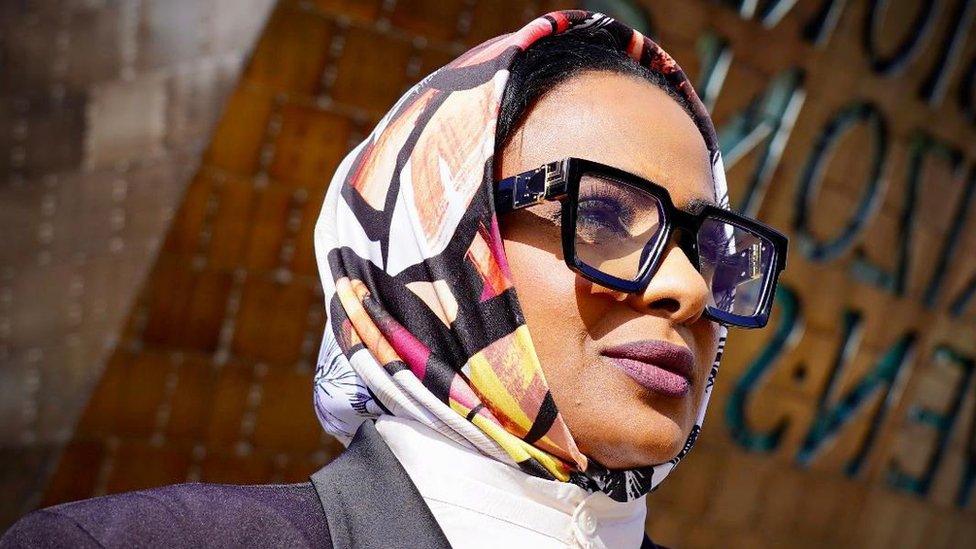
Yousra Elsadig says her and her family have struggled due to the ongoing war in Sudan
Yousra Elsadig, who was born in Sudan, said she had struggled to get excited for Ramadan and Eid.
She said: "Ramadan is a month where we get together, eat and celebrate. The spirit is always high, but this Ramadan has been quite dull knowing people in Sudan are suffering, they're hungry, they will not have access to medical care and so we are not entirely there mentally, so it's been very difficult."
The fashion designer said her bubbly and vibrant personality had been dulled by seeing events at home, saying she had been in a "very dark place" and "not left home" all month.
She added her daughters, aged 12 and 13, were deeply concerned about events in Sudan, saying "they feel safe when their cousins aren't, so it's quite difficult".
Related topics
- Published28 March 2024
